Erin Stagg seems to have an aversion for the level places. She grew up in the mountains in Taos, New Mexico, and now lives between the mountains and the ocean in Dunedin, New Zealand, where she works as a ski instructor and writes. Erin just graduated from Vermont College of Fine Arts in January. She was my student that last semester, which was a great pleasure for me, and wrote a stunning craft lecture on character thought in fiction which has already appeared on these pages.
dg
———
The cold is a permanent resident here. Even in mid-summer when the temperature creeps above 70 and the beach is suddenly overcome with girls in bikinis you know that tomorrow the southerly wind will be back, bringing with it the sting of the Southern Ocean. Sea lions sleep on the sand. Ice forms on the inside of your windows. You have to wear a 4/3 wetsuit to go surfing in the summer. The locals have adapted. They wear shorts, flip-flops and down coats. They fly helicopters out to passing icebergs to take wedding photos. They say that the cold keeps the crowds away.
When you paddle out back you see penguins. You sit upright on your surfboard looking out to sea and watch the waves billow towards you. But you do not try to catch them. Instead you drift. You watch the color of the kelp shift beneath you. You listen to the yelping of the gulls. On shore a knot of people stand at the edge of the esplanade waiting for the waves to smash up against the concrete retaining wall and spray them.
The waves swell beneath you. You grew up in a desert on the other side of the world and so the sheer volume of water is daunting. It is enough just to be out, feeling the ocean and listening to it crash onto land. The first time you caught a wave it closed in over you and drove you down into the tangle of kelp. You don’t like salt water forcing its way into your sinuses.
To the south sprawls the open ocean. You wonder if there are sharks out there, swimming beneath you. Your feet are starting to feel cold.
Dunedin, the Gaelic word for Edinburgh. Aotearoa, the Maori name for the country, Land of the Long White Cloud. In February the students come back from summers spent on the temperate north Island. While they were gone the city had felt abandoned and forgotten. But now the streets pulse with youth. There it still plenty of light left in the evenings this time of year. You discover them reuniting downtown over a curry at the Meridian.
Suntanned and certain of their futures elsewhere they complain about the weather. Afterwards they go to a movie or a flat warming party somewhere up near Roselyn while you walk down George Street towards the black stone buildings of the University. Dub music swelters from the Cook. You can see the lights of a cricket game being endured in the new stadium by the water. But you keep going. You pass through the University. You stop at the Leith River to watch a pair of paradise ducks swim upstream. Then you continue onwards until you reach the botanic gardens where you sit on a bench in the antipodes garden.
From here you can see Mt. Cargil with its cell phone tower crown and, further west, the crease of the Taieri Gorge. A tui whistles from the manuka tree behind you as you watch the sunlight leach slowly out of the sky.
Three hours west, on the other side of the sun bleached sheep stations of central Otago, are the mountains, jagged, treeless and lacerated by glaciers. You go there for the weekend with your bike and your boyfriend’s bike wedged in the back of your station wagon. You stop for a mince and cheese pie in Ranfurly. You meet your boyfriend’s uncle for a pint of Speight’s Beer at the Clyde pub.
By the time you make it to Queenstown it is dark and the Southern Cross is high in the sky refracting off Lake Wakitipu. Your boyfriend decides to go for a swim anyhow, shedding his cloths on the stones at the lake’s edge. You tarry reluctantly. You know the water is glacial. You take off your shoes and slip your toes in. The cold is instant, rushing up your legs. You go no further.
In the morning you will ride your bike along the Arrow River to a ghost town. You will wonder about the gold miners who lived up there in the mountains cut off from everything but the cold.
You notice when the wind changes directions, when it softens and begins to wrap around from the south. You can feel when the weather’s about to change. You can see the southern storms coming, boiling across the water.
Last night it snowed on the hills. The tourists are cold. They come here from everywhere – France, Hong Kong, Perth. They say, “It’s so cold here. We thought it was summer.” You say, “This is summer.” They buy rain jackets and wool socks. They want to know where the steepest street is. They want to see penguins. They think you are from this place. Only the Kiwis can hear the open vowels in your voice, but they are used to immigrants. You are not the first to have been brought here by a kiwi man. This is a country of citizens with multiple passports.
After work you walk down to the beach. The tide is out and so you walk along the sand. You can see clear blue skies forming over the water, pressing the storm clouds away.
—Erin Stagg
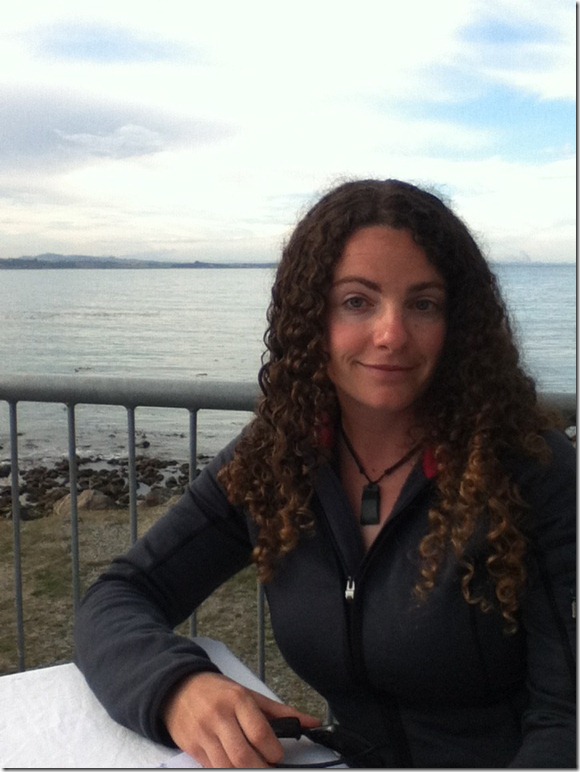
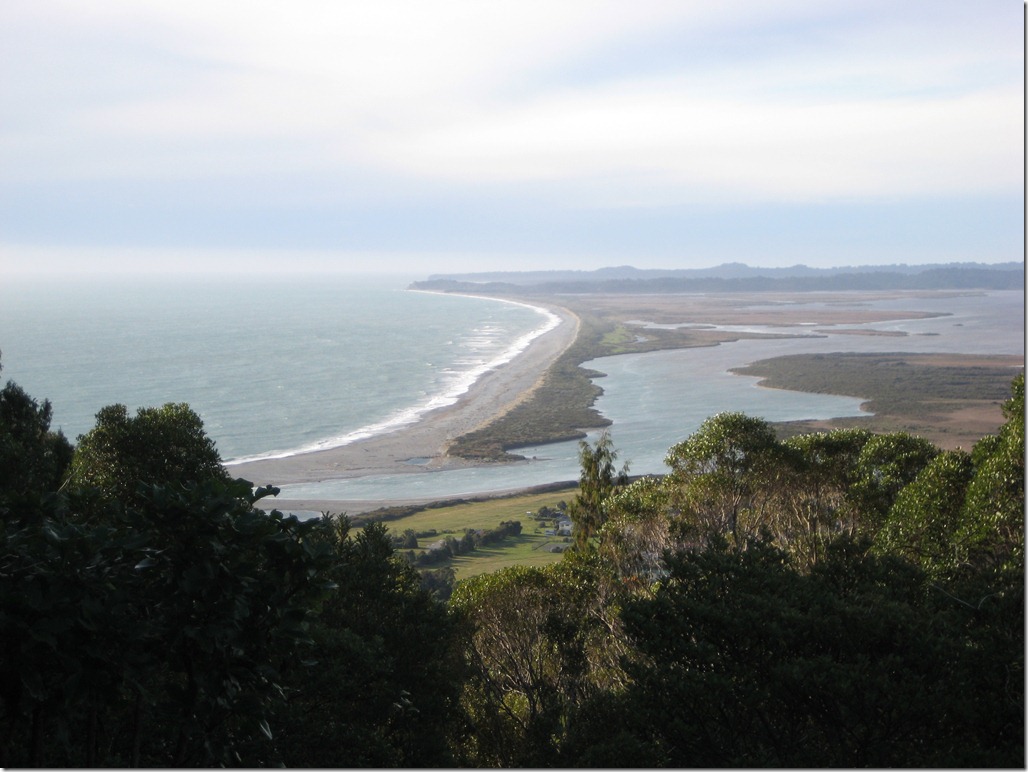
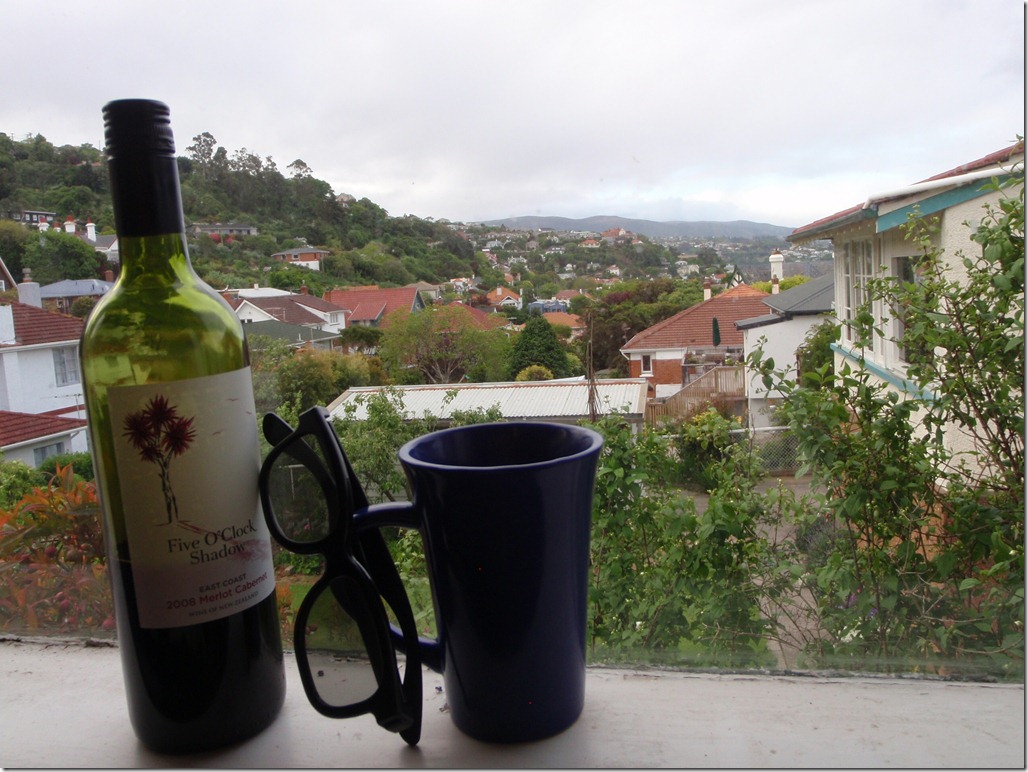
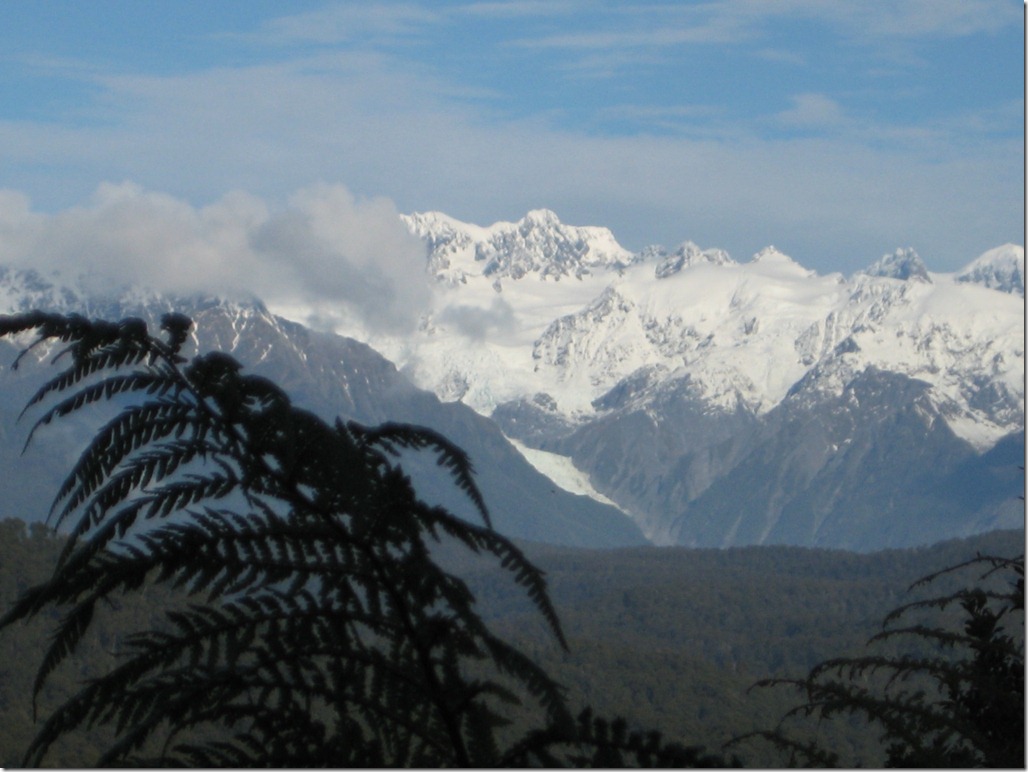
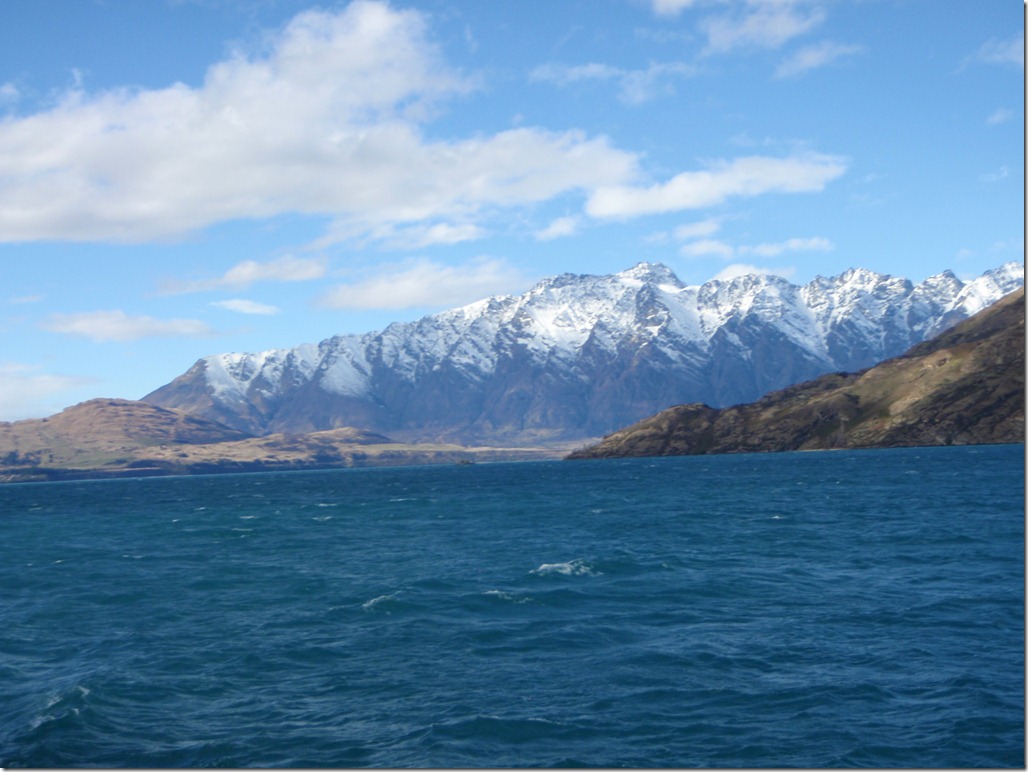
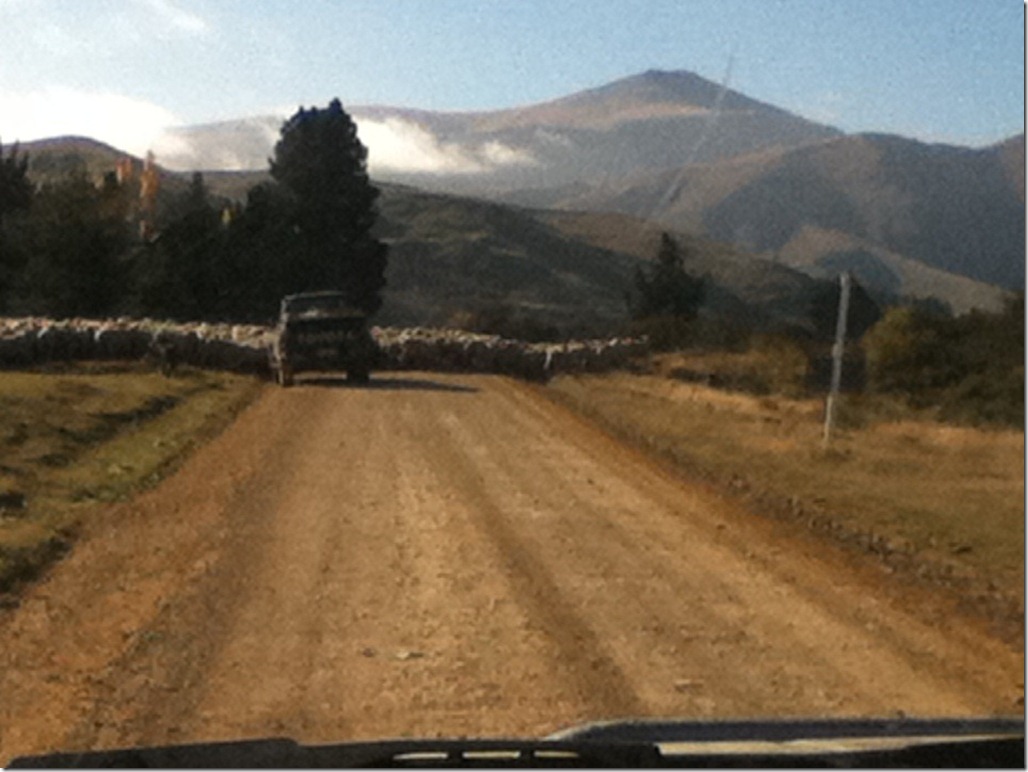
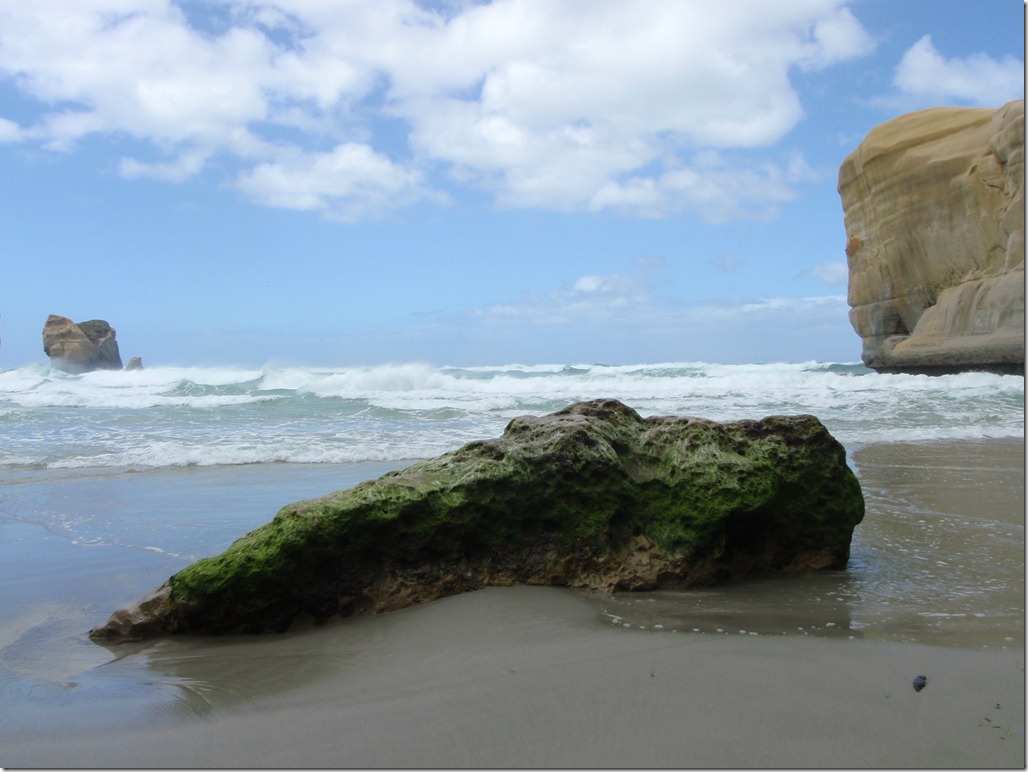
Gorgeous piece from a gorgeous gal!
It is as she says! How cool to have been able to visit this place and done some of these very things with you, Erin (drinks with the uncle, mount cargil, kelp, cold). Nicely done, friend.
Clever girl – nice word imagery – can feel the cold brrrr